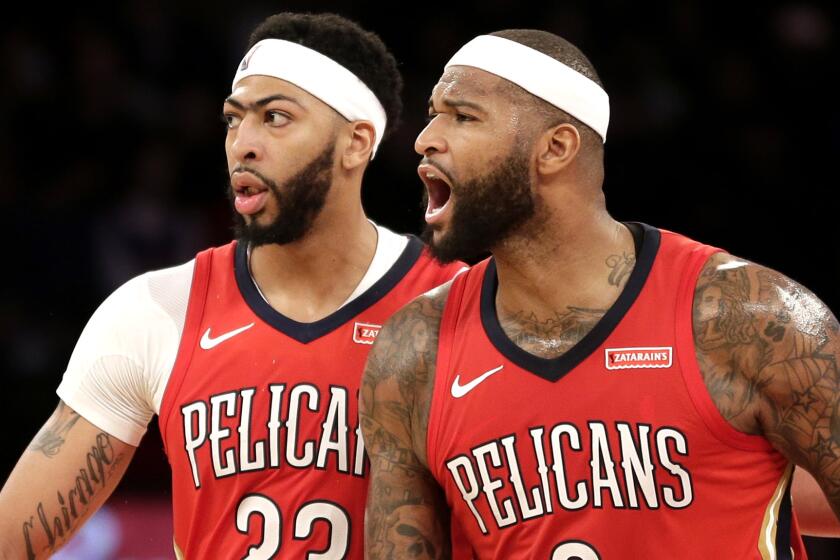Dwight Howard isn’t the villain that Lakers fans make him out to be
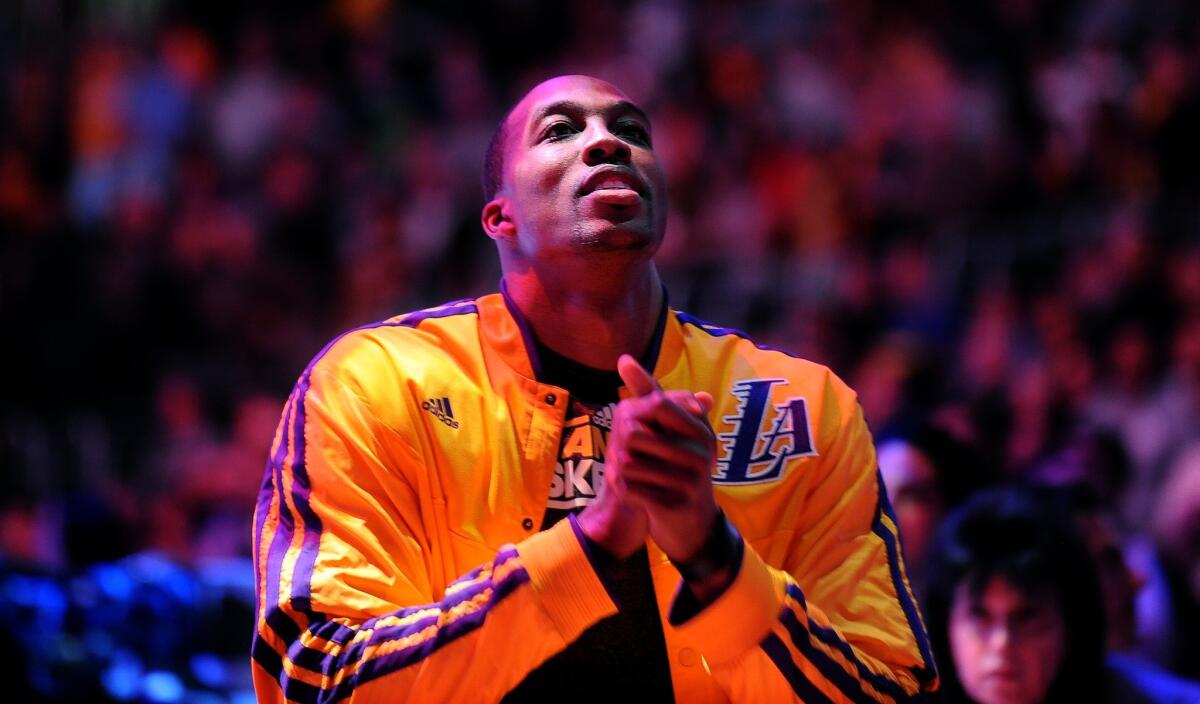
- Share via
When rumors were floated recently that Dwight Howard might be a fit for the Lakers, the reaction of Los Angeles fans was predictable.
Seven years after he spurned the team’s billboard campaign begging him to stay in purple and gold, he remains, arguably, the most vilified former player in Lakers history.
However, that anger is misplaced. Howard isn’t nearly the villain he’s been made out to be. He actually saved the Lakers from themselves.
Let’s go back to 2012. The Lakers had Andrew Bynum, who was the starting center for the West at the NBA All-Star Game, but they had their sights set on Howard, who was the starting center for the East. Bynum was 24 and coming off a career season where he averaged 18.7 points and 11.7 rebounds per game after being the team’s starting center for back-to-back championships. Bynum had one year left on his deal and was in line to get a maximum five-year, $101.9-million contract.
DeMarcus Cousins’ knee injury could force the Lakers to play Anthony Davis at center, something he does not want to do.
As good as Bynum was, Howard was one of the best players in the league. At 26 he was a five-time All-NBA First Team selection and was named Defensive Player of the Year three times. So the Lakers completed a blockbuster four-team deal to acquire Howard, Earl Clark and Chris Duhon from the Orlando Magic and traded Bynum, Josh McRoberts, Christian Eyenga and a protected first-round pick in 2017.
We all know how Howard’s lone season with the Lakers played out, but it’s important to note that Bynum missed that entire season and would only play 26 more games in his career after the trade. He has been out of the league since 2014. Howard not only saved the Lakers from potentially signing Bynum to a big contract before his career petered out, he did them a favor by turning down their offer of a maximum five-year, $118-million deal.
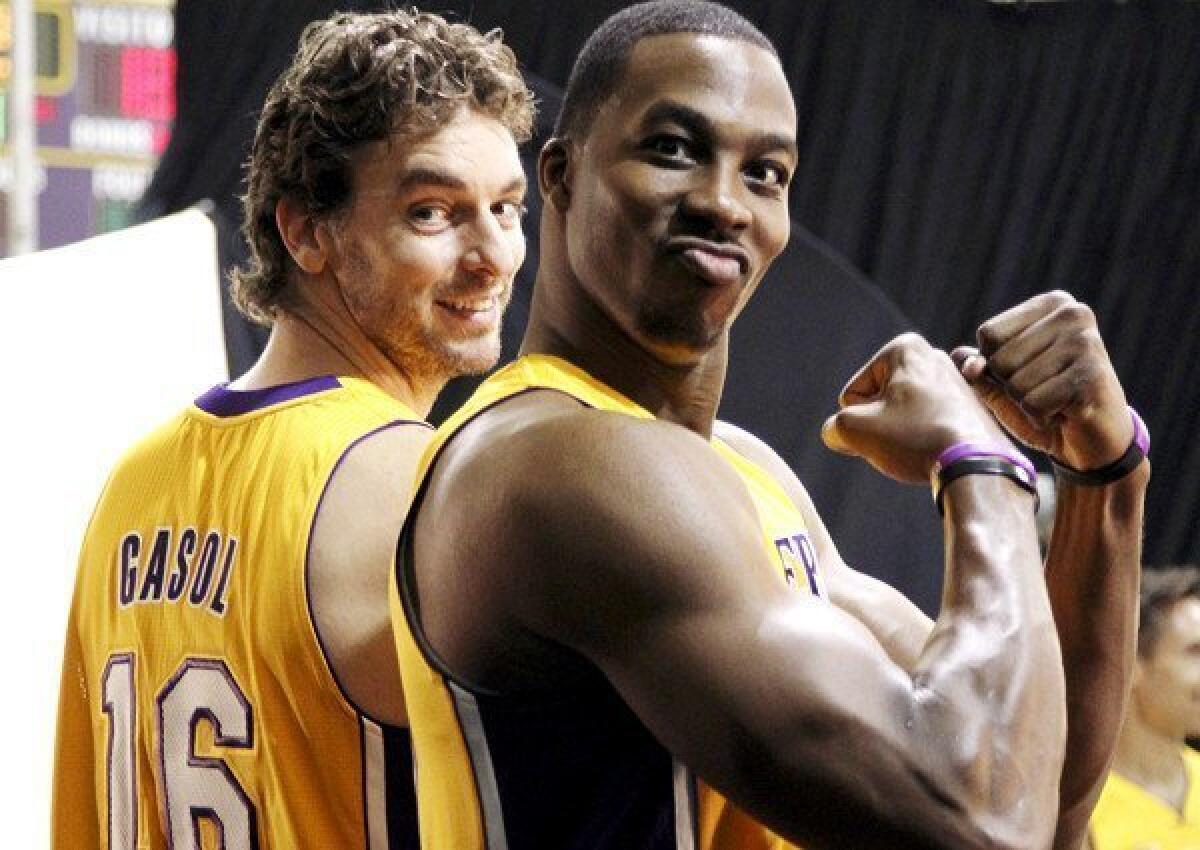
The Lakers traded for Howard thinking he would become the franchise’s next great center, following in the footsteps of George Mikan, Wilt Chamberlain, Kareem Abdul-Jabbar and Shaquille O’Neal. Howard, however, had back surgery prior to the trade and was never the same player again. Even though he was a shell of his former self, the Lakers were still committed to making him one of the highest-paid players in the league. Howard passed and Lakers fans should be thankful he did, not resentful.
One of the reasons the Howard trade didn’t hurt the Lakers as much as it could have was the protections put on the first-round pick in the deal as a result of the Steve Nash trade one month earlier. Those protections alone make the Nash trade an easier pill to swallow, looking back on it seven years later. Yes, the Nash and Howard deals didn’t pan out, but they weren’t franchise-crippling in hindsight because of two obscure rules that prevented the Magic from getting this year’s No. 4 pick, which the Lakers used to acquire Anthony Davis.
“The ‘Seven Year Rule’ says that teams can only trade picks in the upcoming seven drafts, and the ‘Ted Stepien Rule’ prevents teams from making trades that leave them without a first-round pick in consecutive future drafts,” said salary cap expert Larry Coon. “These rules combined to make it very difficult for the Lakers to send draft assets to Orlando in the Howard trade.”
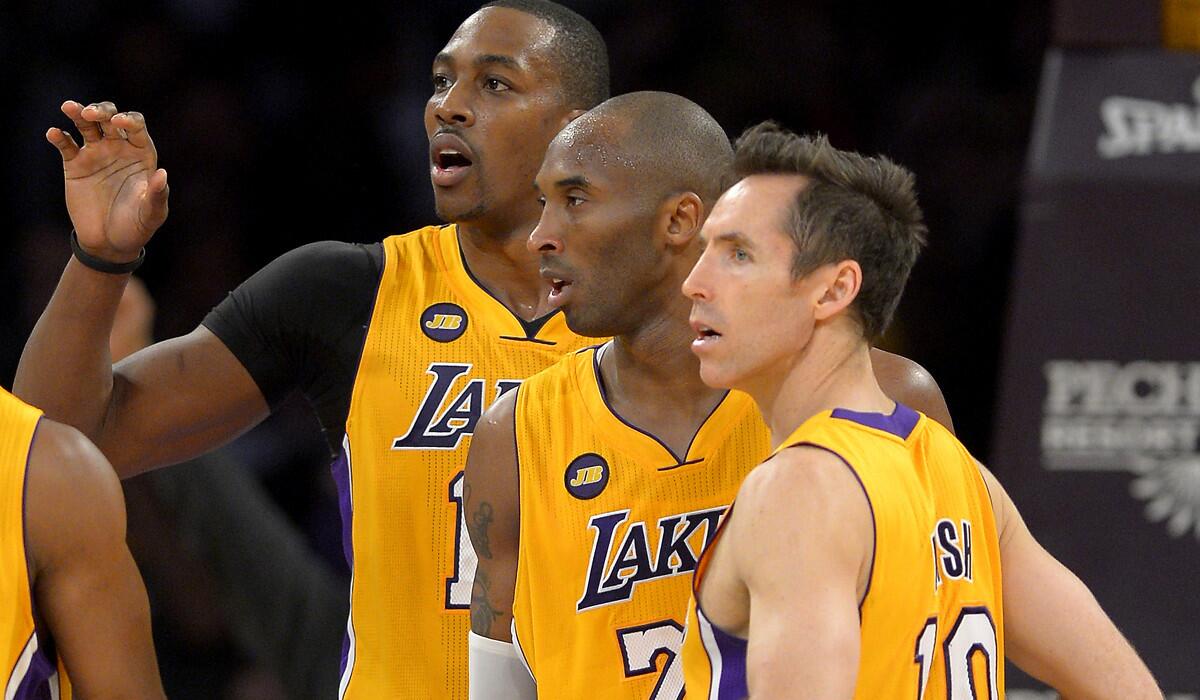
In the Nash deal, the Lakers traded first- and second-round picks in 2013, a second-round pick in 2014 and a protected first-round pick in 2015. The pick was top-five-protected in 2015, and top-three-protected in 2016 and 2017. The Lakers were bad enough to protect their first-round pick each year, leaving Orlando waiting for a first-round pick that would never materialize.
“The Lakers ended up trading the ‘first available’ first-round pick to Orlando, which meant two years after the Suns’ pick conveyed,” Coon said. “However, the pick from the Nash trade could have been delayed to 2018, which would have delayed the ‘first available’ pick in the Howard trade to 2020 — past the Seven Year Rule limit. They solved this problem by specifying that if the Suns didn’t get their pick by 2017, Orlando instead received two Lakers second-round picks in 2017 and 2018. This is exactly what happened.”
That’s right, the Lakers didn’t even lose a first-round pick in the Howard trade. When the dust finally settled on both deals last year, the Lakers ended up parting with Bynum before his career fell off a cliff and draft picks that turned into Nemanja Nedovic, Alex Oriakhi, Johnny O’Bryant, Mikal Bridges, Wesley Iwundu and Rodions Kurucs. Half of those players aren’t even in the NBA. Most Lakers fans would be forced to Google how the other half fared last season.
“It actually was a great set of trades,” Coon said. “Sure, injuries prevented Nash and Howard from being successful, but the deal had the potential to be the trade of the decade. In the end, Howard did them a favor by saddling Houston with his albatross contract rather than the Lakers. It didn’t work out like they’d hoped, but it was well worth the risk, and it ended up not costing them anything of significant value.”
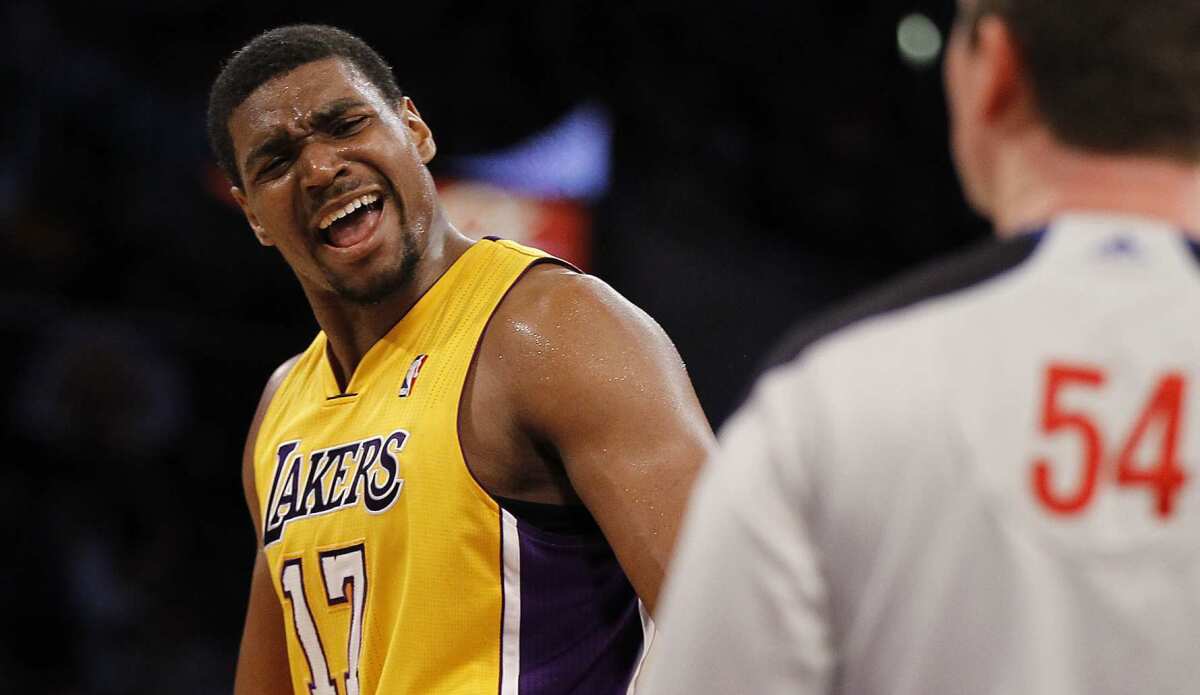
Howard was never the franchise player the Lakers and their fans thought he was. The resentment Lakers fans still feel toward him isn’t based in reality, but in the hopes and dreams they had for him that never materialized.
This is what Howard is: a journeyman who by the start of next season will be playing for his fifth team in five years. He was never going to be a franchise player worth the maximum deal the Lakers begged him to take, and he walked away.
Could he help them now? That’s up to Rob Pelinka and the Lakers brain trust to decide. A deal seems unlikely, but the team needs a center. But whatever happens, Lakers fans, there’s no reason to be angry at Howard.
More to Read
All things Lakers, all the time.
Get all the Lakers news you need in Dan Woike's weekly newsletter.
You may occasionally receive promotional content from the Los Angeles Times.
